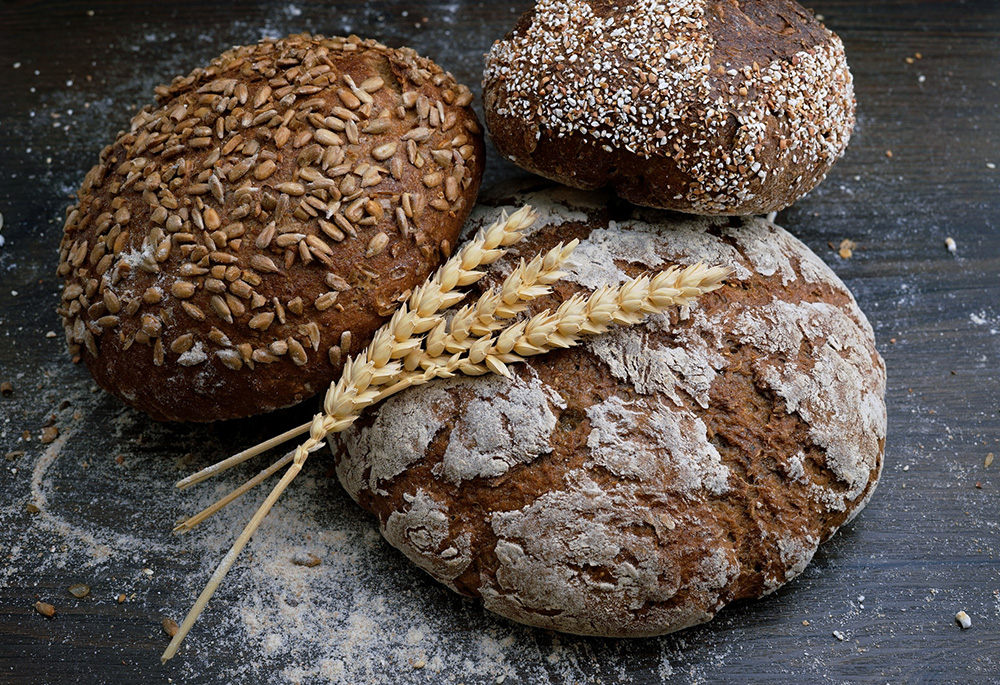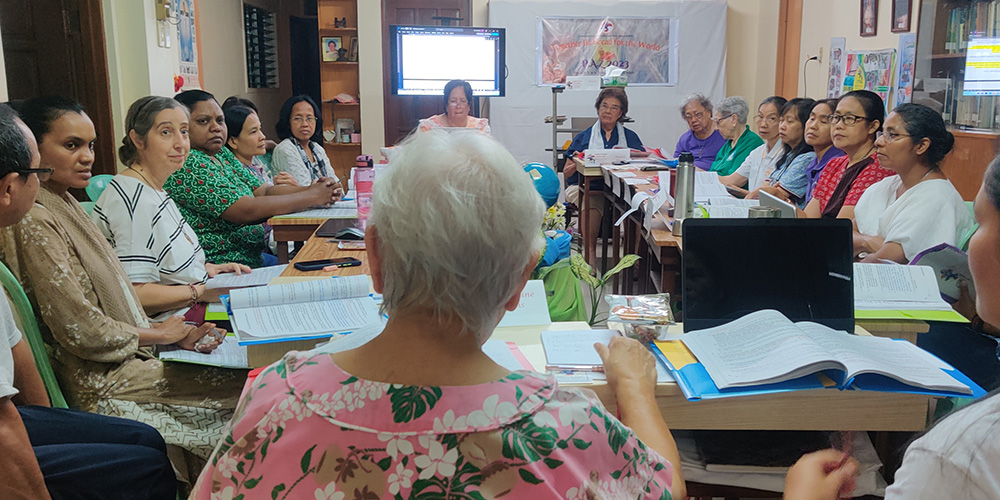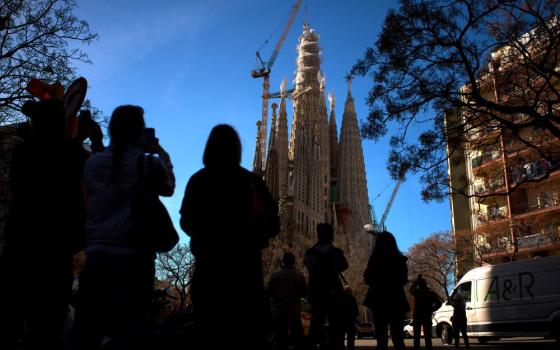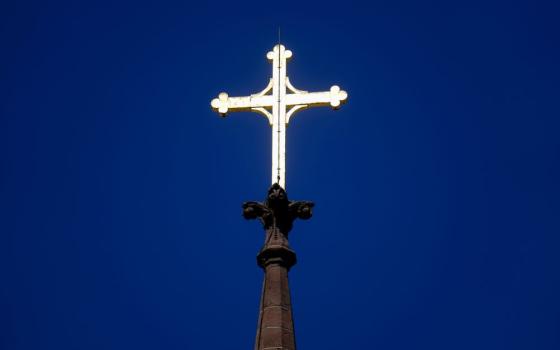
(Unsplash/Wesual Click)
In March 2023, I participated in the zonal assembly of the Congregation of the Sacred Hearts of Jesus and Mary, the religious community to which I belong. The assembly was in Manila, the Philippines. We were 20 delegates who came from India, Indonesia, the Philippines, the United States, and Rome.
What kept me deeply contemplating all through the assembly was the theme: "Together be bread for the world." During the assembly, we reflected and discerned on being bread for others. We focused on forming ourselves as being closely connected to God, learning from Jesus; what he did, how he did it, and especially how he transformed himself for the life of the world. It was undoubtedly a moving experience.
The assembly lasted from March 13-17. I returned to India on the 20th. On March 25, a new case of another malnutrition death was reported from Jajpur in the eastern Indian state of Odisha, where I am working presently. A starvation death now, in the land of surplus food grains? When there are government programs for subsidized food for all? Questions such as these haunted me.
We have alarming numbers of deaths from starvation and malnourishment in our country. Shocking incidents of starvation deaths occur mostly in the Indian states of Odisha, Chhattisgarh, West Bengal, Madhya Pradesh, Bihar, Jharkhand, Uttar Pradesh, and Rajasthan.

Participants are pictured at the March 2023 zonal assembly of the Congregation of the Sacred Hearts of Jesus and Mary, 20 delegates who came from India, Indonesia, the Philippines, the United States, and Rome. (Courtesy of Sujata Jena)
A majority of the deaths are women and children. Socially, they are also mostly among the Dalit and Adivasi people (the lowest in the caste system are those who call themselves Dalit and the Indigenous people who call themselves Adivasis). Starvation deaths are a sad reality in India, though many cases are unreported. This depressed me. I have been seriously reflecting on this, as I have been involving myself with the poor, hungry, and marginalized people. I started to ask myself: What am I expected to do?
According to a recent Al Jazeera news report, "As many as 828 million people – or 10 percent of the world's population – go to bed hungry each night: 46 million more than the previous year, according to the United Nations Food and Agriculture Organization (FAO)."
Millions of people live in hunger and die of starvation because the loss of life to starvation death is not taken seriously by any government. The United Nations Sustainable Development Goal 2 is about creating a world free of hunger by 2030. Unfortunately, the goals are not legally binding to any country. The top leaders of the world need to think about how to save the lives of the poorest who are on the periphery, and how to save these by providing nourishment and food. Regrettably, what we often witness is that they are concentrating on luxurious infrastructures, buildings, wars and weapons.
India has the largest food plan in the world in terms of the number of people covered. Officially, some 800 million people have been covered under the National Food Security Act for receiving highly subsidized food grains. Sadly, often the food doesn't reach the poorest of the poor. Food assistance is denied to the hungry because of want of an Aadhaar card, a 12-digit individual unique identification number that serves as proof of identity and address for Indian residents.
Many people living in poverty do not have an Aadhaar card as they do not have residences, and/or they move from place to place. Some other technical glitches also can prevent them from having one. If the food programs don't reach the poorest of the poor, what are they for? Most of the time we talk about the issue in percentages and statistics. Counting the people as numbers, not as human beings, does not disturb us.
Advertisement
It is the duty of the government to take appropriate measures to save the lives of the poor and hungry. It is our responsibility to ensure food security when we know someone is starving. As a woman and a religious it is my responsibility to arrange food when someone is hungry and starving.
What did Jesus do in his life as a prophet and concerned human person?
For Jesus, feeding the hungry was an important act. He not only preached, but he performed miracles. And many of them are related to food:
-
Jesus' first miracle was turning water into wine (John 2).
-
Jesus feeds the 5,000 in the miracle of five loaves and two fish (Matthew 14:13-21) as seen in all four Gospels.
-
Jesus feeds the 4,000 along the sea of Galilee (Matthew 15:29-39).
-
Jesus and the miraculous catch of fish (John 21).
The Lord's Supper (Luke 22:7-23) is the last meal Jesus shared with his disciples before his passion and death. Through this he left us with a memorial of eating together in the Eucharist.
What do these Gospel passages tell us? Jesus cared for the poor and hungry. He not only cared for the spiritual needs of the people but also their physical needs. Jesus was the first food activist, who fed the people not just in words but in actions.
Food is an essential part of everyone's life. It nourishes our body, mind and spirit. Everyone who is hungry should be given food unconditionally and universally. It is the fundamental right of a person and the inherent duty of every government to make sure that everyone in the land gets their basic needs of food, as is their due.
Jesuit Fr. Irudaya Jothi, who is a food activist and the convener of the Right To Food movement in West Bengal state, preaches at La Croix International that "feeding the hungry is rediscovering the mystery of the Eucharist."
He challenges us often during the seminars and workshops he holds for religious, about the significance of our prayer to the Father, "Give us this day our daily bread." He encourages us to reach out to others with food and demand that the government, which has the responsibility, to distribute food to the hungry!
Hence, the theme "Together be bread for the world" makes a lot of sense to me as a Sister of the Sacred Hearts. On this solemnity of the Most Sacred Heart of Jesus, I recommit myself to being bread for others, by learning from Jesus himself and by offering myself to nurture the lives of the poor and marginalized. I won't quit when faced with challenges, but untiringly I seek to fulfill the unique purpose God has in store for me/us — and do so in a way that communicates dignity, love, and respect to every individual whom I come across — and thereby continue to establish the kingdom of God.





